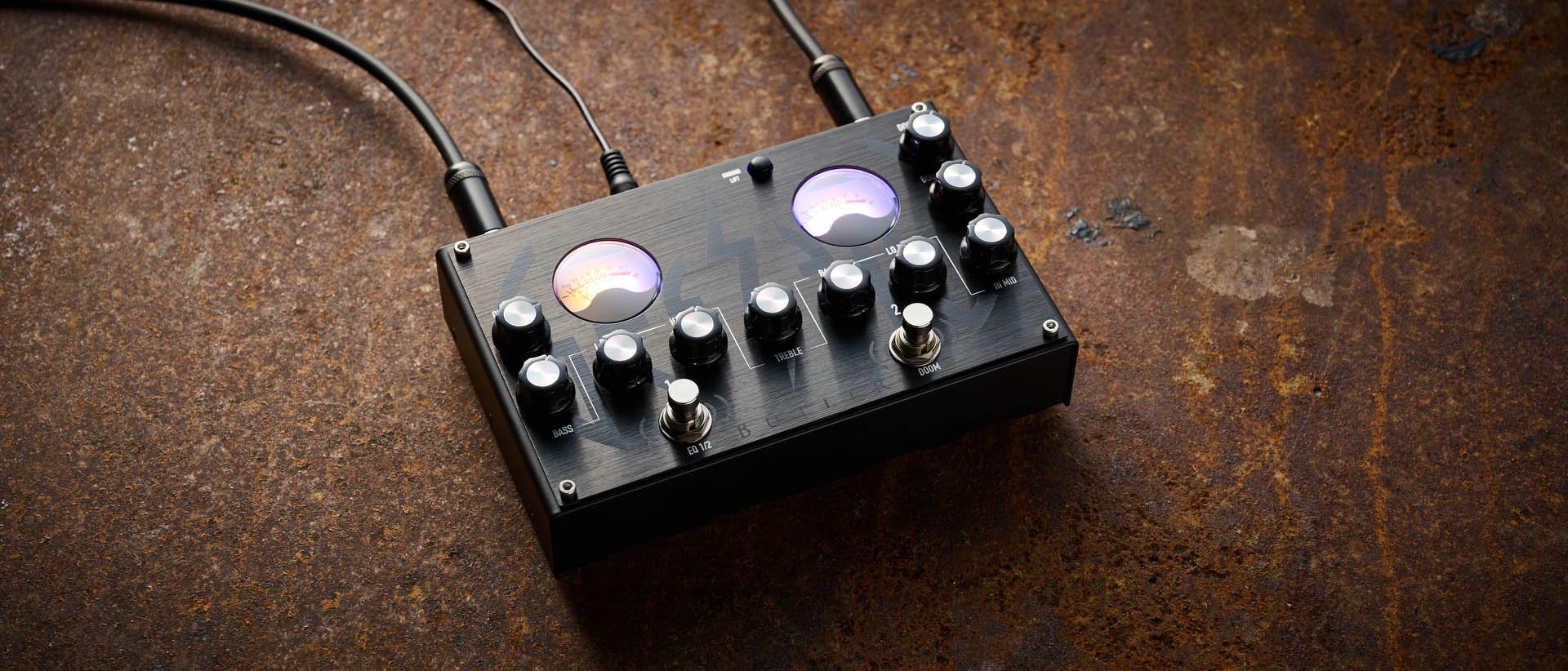“I bought it off a druggie – which I feel terrible about”: From his beloved '59 Strat to his stable of ultra-delicate steampunk guitars, Rick Springfield discusses his guitar journey, and his mission to buy up every instrument he had to part with
The pedal-avoiding Jessie’s Girl songwriter recalls some of his best and worst purchases, and his experiences working with Neil Giraldo and Dave Grohl
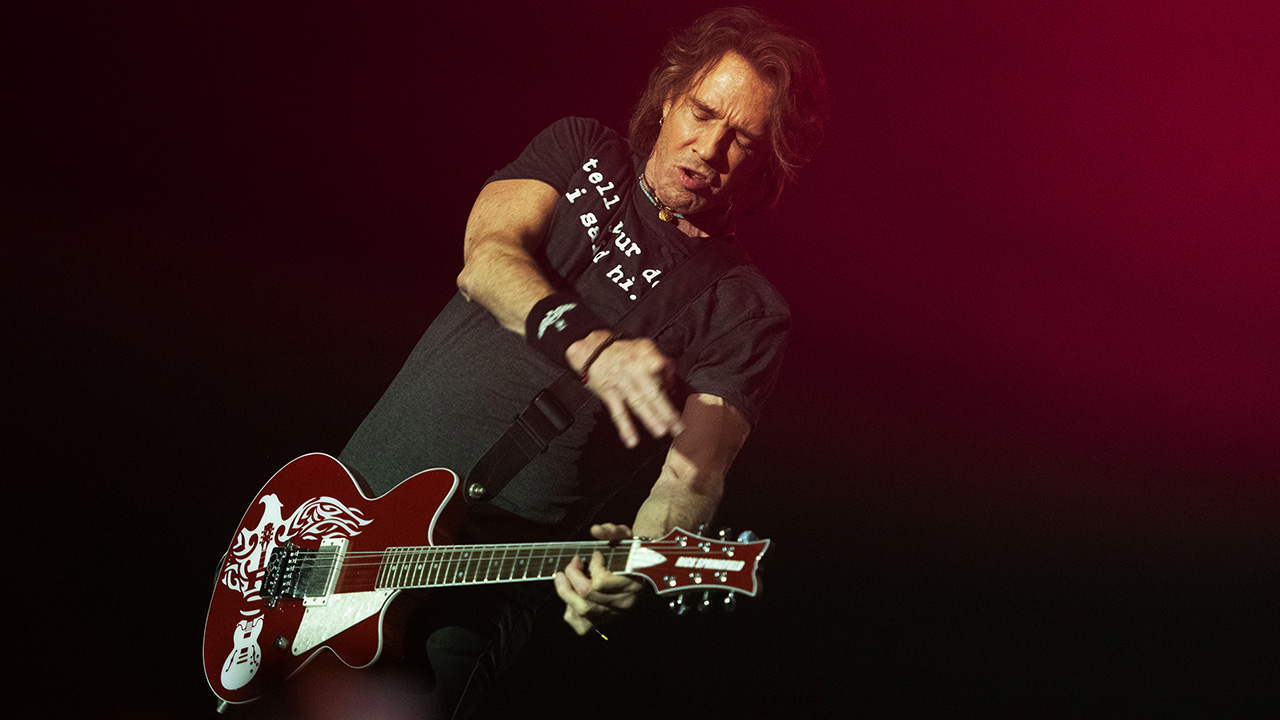
“The comment I’ve heard more than anything else is, ‘Wow – I didn’t know you could play like that!’” Rick Springfield tells Guitar World. “I’m definitely a guitar whore,” he adds. “I have them hanging on the walls of my house. I love to look at them.
“I guess it’s good people aren’t going, ‘I thought you’d be better!’ I don’t mind being underrated – it’s a good thing. You can surprise people. But I’ve been playing since I was 13, so if I don’t have something at 75 I should just give up now!”
The man who wrote Jessie’s Girl and once starred as Dr. Noah Drake in General Hospital can, it turns out, rip it up with the best of them. “I noodle until I find something,” he explains.
“Then I expand on that. If it goes somewhere, I continue – if it doesn’t, I move on. Once it starts to form itself, that’s when I get excited. I come back, listen to a piece of it, and if I’m still excited, if it really jacks me up, I’ll finish it.”
That process – which manifested the 1981 hit record Working Class Dog and its 1982 follow-up, Success Hasn’t Spoiled Me Yet – must still be working for him. He just released a new track, Lose Myself, which is part of his upcoming Greatest Hits Volume 2 package.
Beyond that, a new album is in the works.
“It always amazes me when I finish something and it’s not a copy or subconscious plagiarism,” he admits. “It’s something new, and it amazes me still. I love it – that’s the drive behind it. As long as I love it, and it’s a great way to express myself, I’ll keep doing it.”
All the latest guitar news, interviews, lessons, reviews, deals and more, direct to your inbox!
What’s the story behind the new single, Lose Myself?
“I got a track from a Swedish guy named Niclas Lundin, who I’ve worked with before. I liked it; but the lyrics were obviously somebody else’s take on another thing. Lyrics are important to me; they’re going to be personal, so I redid them. I’d liked it initially, but the direction wasn’t completely where I see myself as a human being.”
What sparks your inspiration when you pick up a guitar?
“I have a 16-track keyboard workstation and a little backpack guitar that I’ve written just about everything on. I just sit around… inspiration is overrated. You’ve got to sit around and make something happen.”
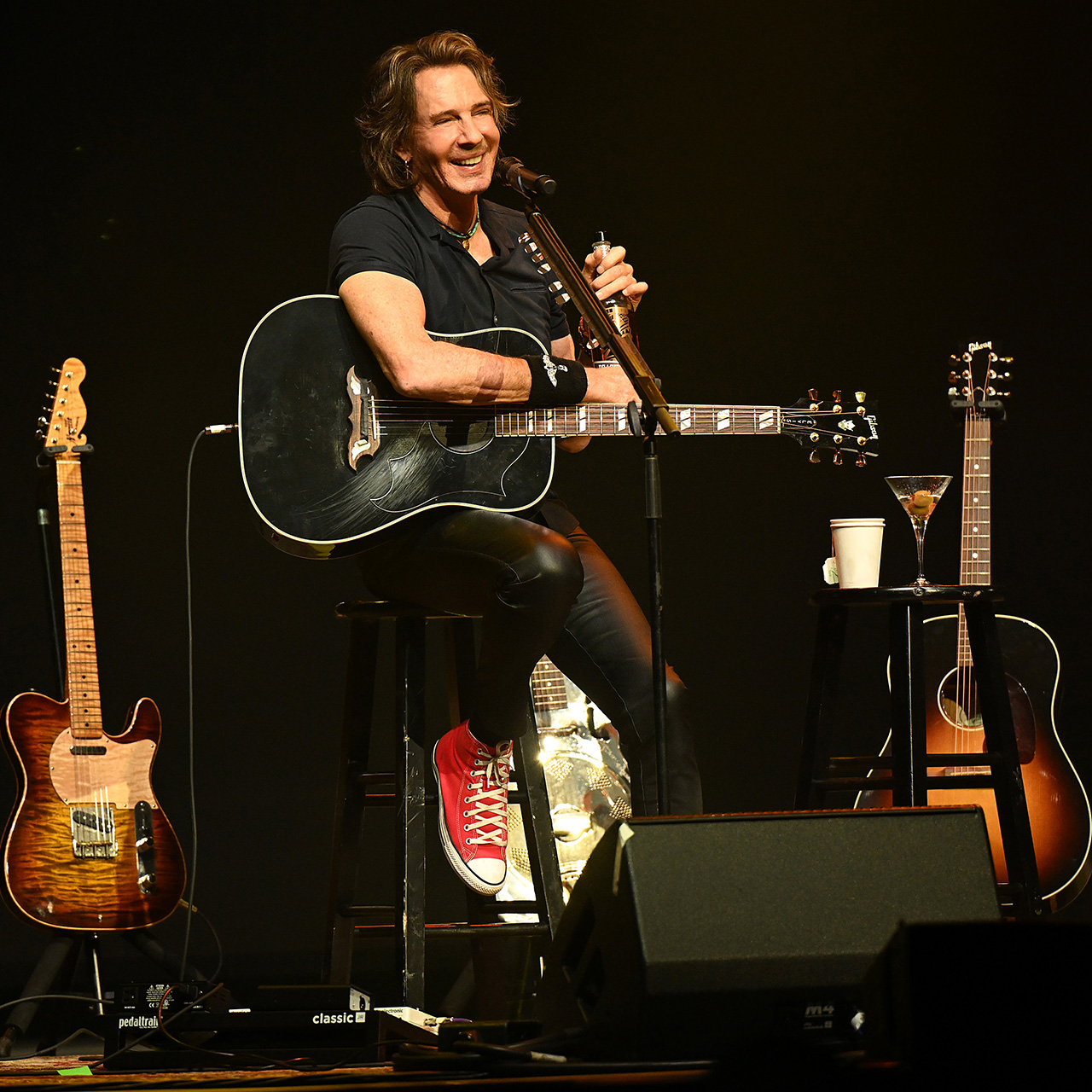
Do particular guitars lead to that more than others?
“Every guitar is inspirational. If you’re a writer, especially, you just start noodling. A lot of people pick up the guitar for the first time, and they’ll play a lick from a song they love; but the writer will pick it up, start noodling, and see if there’s a song in a guitar.
“A long time ago, a fan gave me this Martin backpack guitar. It’s this little skinny guitar – it’s great, but it’s falling apart. I’ve got it glued together and a piece of driftwood on the inside to keep the sound hole from caving in. It’s beat to shit, but I carry it everywhere. There’s a lot of songs in that guitar.”
Pedals were really Neil Giraldo’s thing… I like a straight guitar sound with the guitar into the amp
You’ve played some steampunk-looking guitars in recent years. What’s the story with those?
“A guy named Tony Cochran, who I found online, made them. I’m a big steampunk fan, and he made a couple of guitars for me just for looks. They were fun to play so I started taking them on the road. But they were so delicate that I retired them pretty fast and stuck them on the wall.”
What are your go-to guitars?
“I have a ’59 Fender Strat that I bought off a druggie – which I feel terrible about. I recently got a ’64 Epiphone Casino because of my love for The Beatles and their guitars. That’s an amazing guitar; it’s really versatile.
“But my original favorite guitar is the old Gibson SG that I bought in 1969 in Australia, where I grew up. That was the first good American guitar I’d ever owned.”
Was that SG the guitar you used for Working Class Dog?
“Yes, absolutely. It’s been a really lucky guitar for me, and it has a great sound. I wrote Jessie’s Girl on it. Back then, if you wanted another guitar you had to trade in the one you had. It wasn’t like it is now, where once you get some kind of name, they give you guitars.
“It’s kind of the reverse of what it should be; when you’re starting out it should be a lot easier to get a great guitar. But that was the one I played on. It was the main guitar on Working Class Dog – that and a ’71 Gibson Les Paul Custom that I had stripped and made into a gold top. I used those two guitars exclusively.”
Neil Giraldo played a lot of guitar on Working Class Dog – but you played more than people realize. What was it like working with Neil?
“Neil actually turned me on to the original Eventide H9 Harmonizer. It had one dial that you dial the tuning down… I don’t know what the measurement was, but it was one fucking thing, and you dial it down, split it between two amps, and that was the sound he used on Jessie’s Girl.
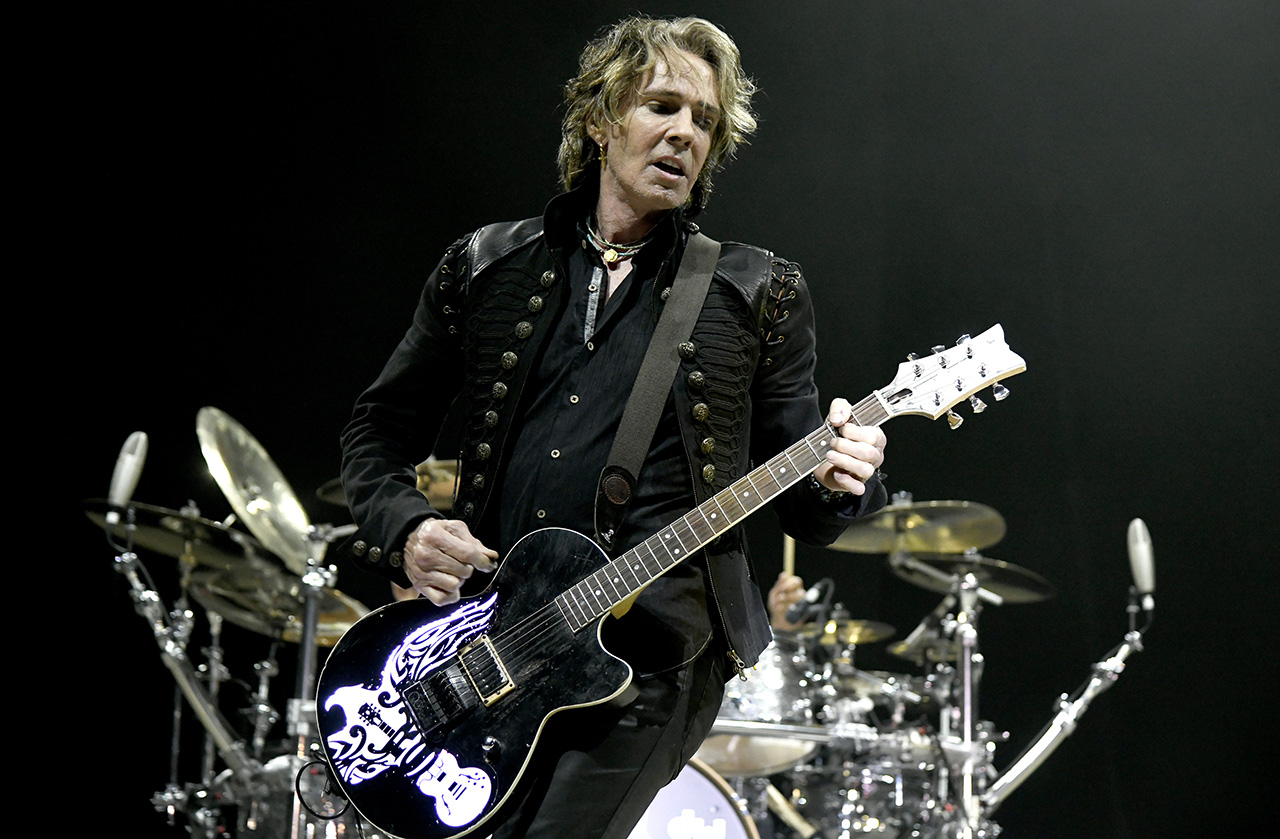
“I adopted that for the whole of Working Class Dog. It’s a great sound. It sounded like double-tracking because you’ve got one guitar coming through the speaker in normal tuning and one slightly lowered. It was a unique sound I’d never heard; I probably wouldn’t have found it myself.”
You weren’t really into pedals, right?
“It was really Neil’s thing. I’ve done stuff like hooking up to Leslie speakers; but pedals, I’ve not really been a big fan. I like a straight guitar sound with the guitar into the amp.”
We have to circle back to the ’59 Strat, which you said you bought from a druggie. What’s the story behind that?
“One of my old drummers – I won’t say who it was because he was doing the drug route himself – he said, ‘Hey, I’ve got this friend. He’s got a ’59 Strat, and he needs money. He’ll sell it to you for four grand cash.’
“The finish had been sanded off, so it was worthless anyway. But all the electronics were original, so I had it checked out and gave him the $4,000. I had the tobacco finish redone on it, and it’s awesome. I love it. It was a great, great deal.”
You collaborated with Dave Grohl and the Foo Fighters on the 2013 Sound City project. How did that come to be?
“They called me up because my manager had owned Sound City and I’d recorded Working Class Dog there. I recorded Jessie’s Girl on the same soundboard Nirvana recorded Nevermind on. Dave was looking for other people who had used that board in the studio, and had their lives changed.
My first electric was just magic. I’d stick it at the end of my bed and look at it before I went to sleep… plug it in now, and it’s pretty awful
“It certainly changed my life after Jessie’s Girl, and his life after Nirvana. I had a lot of stories about the studio because I’d hung out there. I was a bit of a studio rat.
“Dave got all these musicians together and said, ‘Why don’t we start writing songs?’ Then he came up with the idea of going on a little tour. It grew from this documentary that he came up with. He sent me a couple of tracks he’d already recorded, and one of them was the initial riff for The Man That Never Was.
“I said, ‘I like this. This has the vibe, but I don’t know if it has a hook.’ Dave said, ‘Yeah, that’s the problem.’ I went in with them; I was a little nervous being on someone’s turf. You go into their studio with their gear, and it’s their tour.
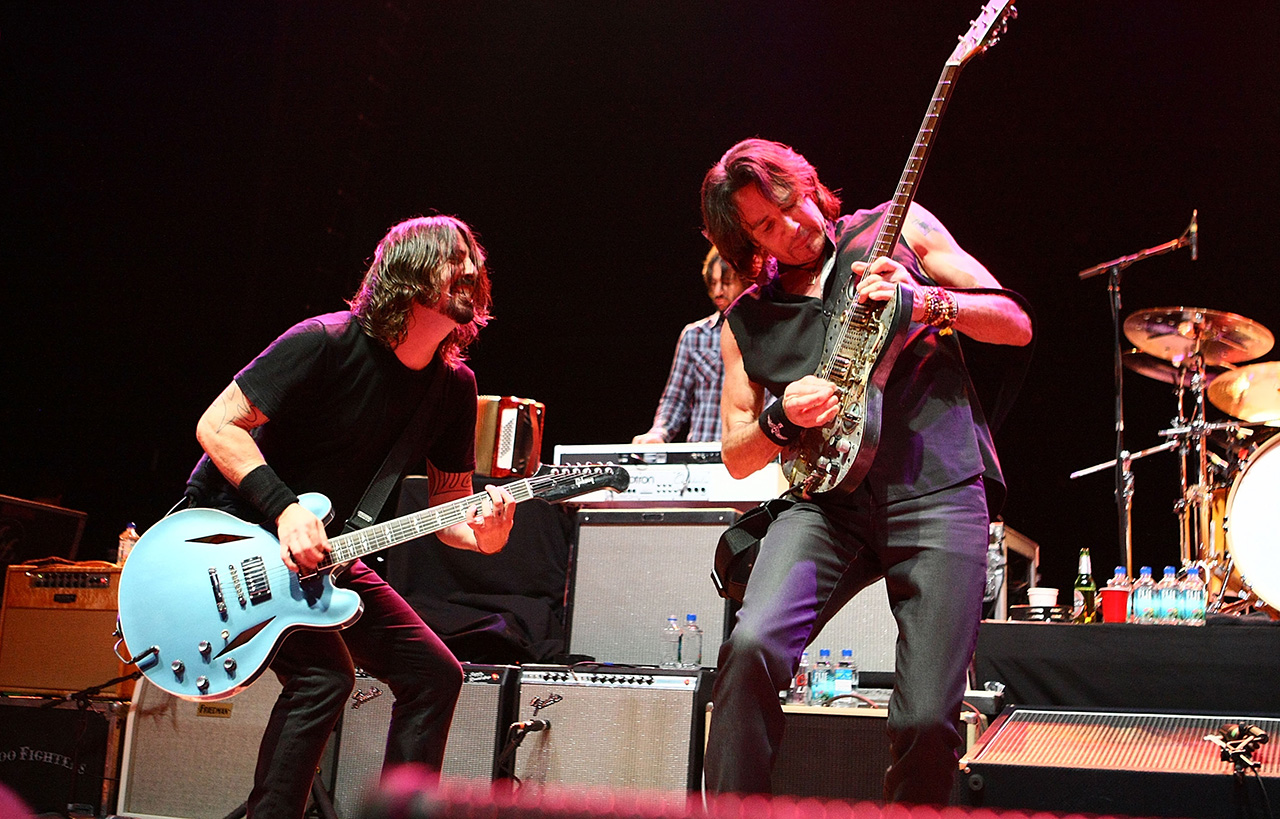
“But they’re a great band and all good guys. We got down to it pretty fast and wrote around the opening riff. Dave said, ‘Go write a song to it.’ So I wrote The Man That Never Was, did some vocals, some guitar, and it was great.”
What’s the secret to your success as a guitarist and songwriter?
“Oh, fuck, I don’t know! My first songs were pretty horrible, and so are most people’s first songs. Except Paul McCartney, the bastard! His first songs were good enough to put on Beatles albums.
“Most of us aren’t so fortunate. I really worked at it. I love the art of songwriting. I don’t understand it any more than any other writer does, though. You pick up a guitar; there are 12 notes, the scales, and 26 letters in the alphabet; and somehow you come up with something.”
You’ve gotten plenty of credit as a songwriter and an actor, but your guitar playing is mainly overlooked. Does that bother you?
“I consider myself a journeyman guitar player. I’m certainly competent. I think a lot of people are surprised when they see I’m actually a competent player coming out of the soap opera world!
“I’ve been in bands since I was 15, but that’s not people’s awareness of me. I get that; there’s a joke about cherishing my one-dimensional self and my geek status. But it was a bit of a pain in the ass for a long time.”
We know you love vintage, off-the-beaten-path guitars. Are you still hunting?
“The first guitars I had as a kid, I had to let them go. Like I said, you had to sell one to get a new one back then. I found them all – not the actual guitars, but the models. Some of them were actually very obscure and hard to find. The first was a Framus Hollywood; there’s a photo of me from when I was like 14, holding one in my backyard in Australia.
I’m very proud of having written Jessie’s Girl. It seems to have taken on that thing that every writer hopes for
“It was the first electric I ever had, and it was just magic. I’d stick it at the end of my bed and look at it before I went to sleep. It was this kind of cheesy, gold-red color and it had one pickup. It basically sounded like shit! I plug it in now, and it’s pretty awful, but I found it.
“The next one I found was a Hofner Galaxy; a German guitar, shaped like a Strat, which is what I loved about it. It had three pickups, and for a 16-year-old that was badass. I traded that one in for a Kay Red Devil.
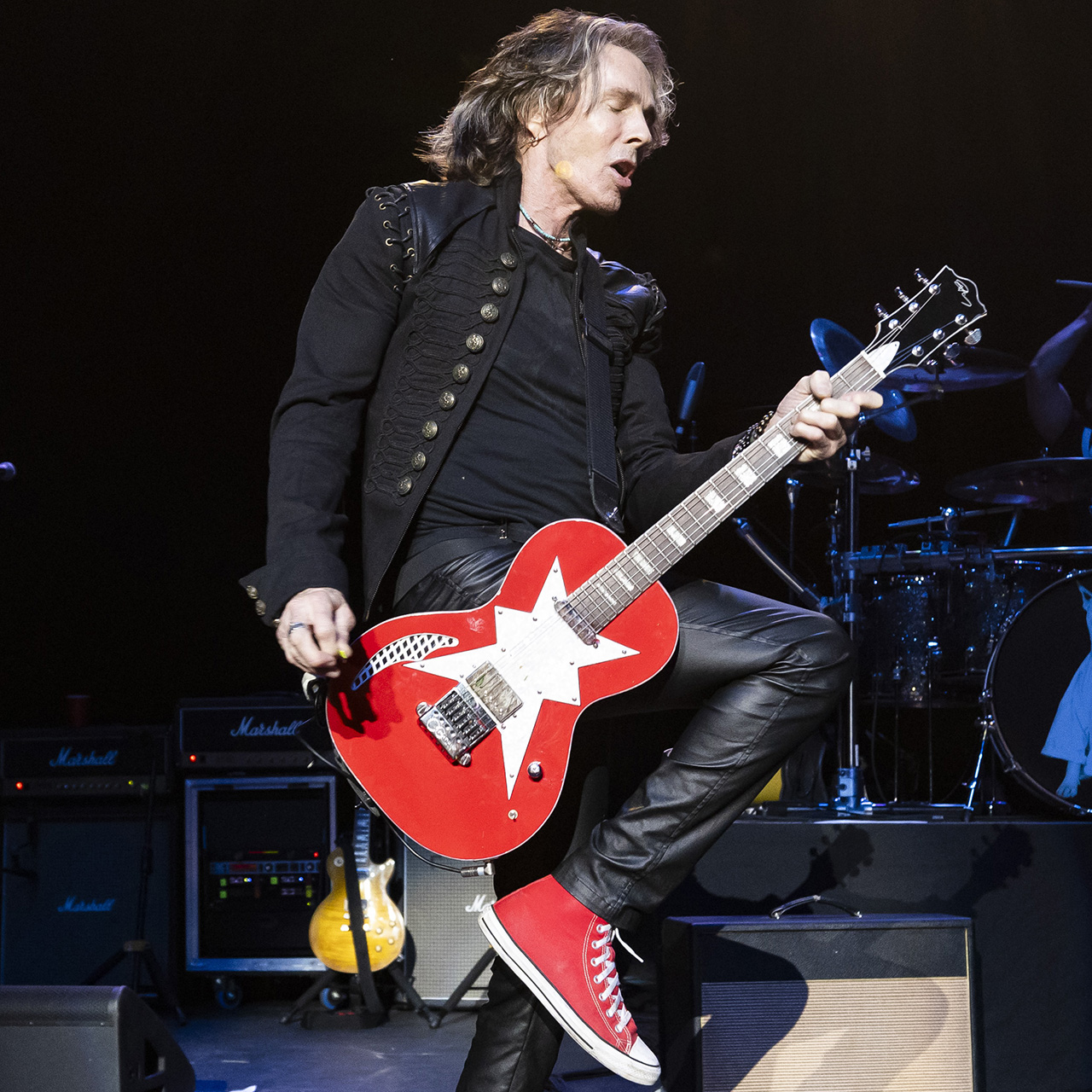
“I found one of those, and I wanted it, but they charged me up the ass for it. I was really pissed but it was the only one I’d found. The next one I found was a Fender Mustang, which wasn’t that hard. So they’re all weird, but meaningful to me – and not just because they’re weird!”
Do you ever tire of picking up the guitar?
“I get tired of showering but never picking up the guitar! It’s always fun. Once you’re a guitar player, you’re a terminal noodler. You pick one up, and you’ve just got to play it. It’s the same shit, really, but every guitar is exciting.”
What’s next for you?
“I’m writing for a new album now. A second greatest hits is coming out and Lose Myself will be on that. Plus, I re-recorded Jessie’s Girl; I guess you’ve got to stick that on. A lot of it is fan favorites from the last 30 years; I think the best stuff I’ve written is the stuff after all the ‘80s stuff.”
Do you ever get tired of playing Jessie’s Girl?
“I’m very proud of having written it. It seems to have taken on that thing that every writer hopes for. It’s one of those… I guess you call them ‘evergreen’ songs. You play it and go, ‘God, I really love playing this song.’ It’s the audience’s reaction; it’s like showing off your favorite, or being the most popular kid!”
- Lose Myself is out now. Springfield’s new greatest hits package will be released early 2025.
Andrew Daly is an iced-coffee-addicted, oddball Telecaster-playing, alfredo pasta-loving journalist from Long Island, NY, who, in addition to being a contributing writer for Guitar World, scribes for Bass Player, Guitar Player, Guitarist, and MusicRadar. Andrew has interviewed favorites like Ace Frehley, Johnny Marr, Vito Bratta, Bruce Kulick, Joe Perry, Brad Whitford, Tom Morello, Rich Robinson, and Paul Stanley, while his all-time favorite (rhythm player), Keith Richards, continues to elude him.





